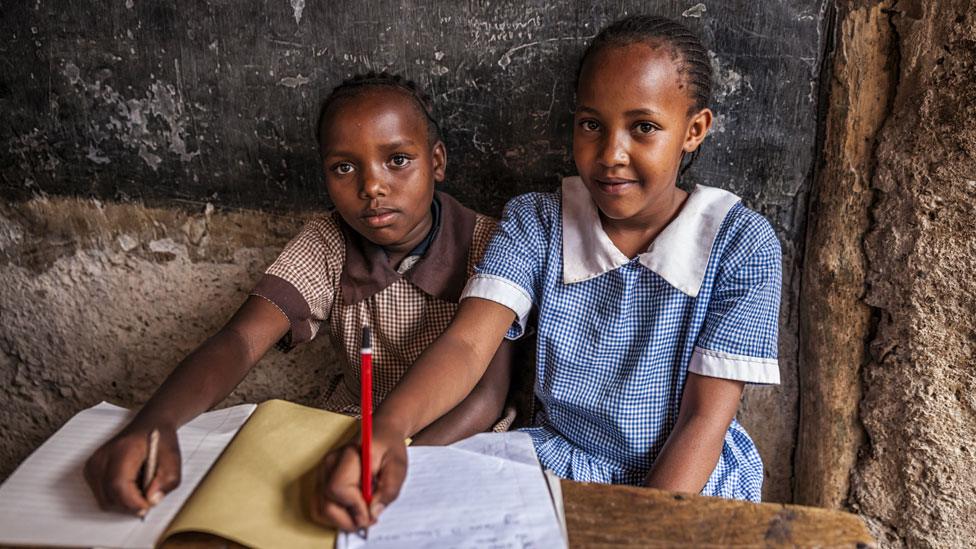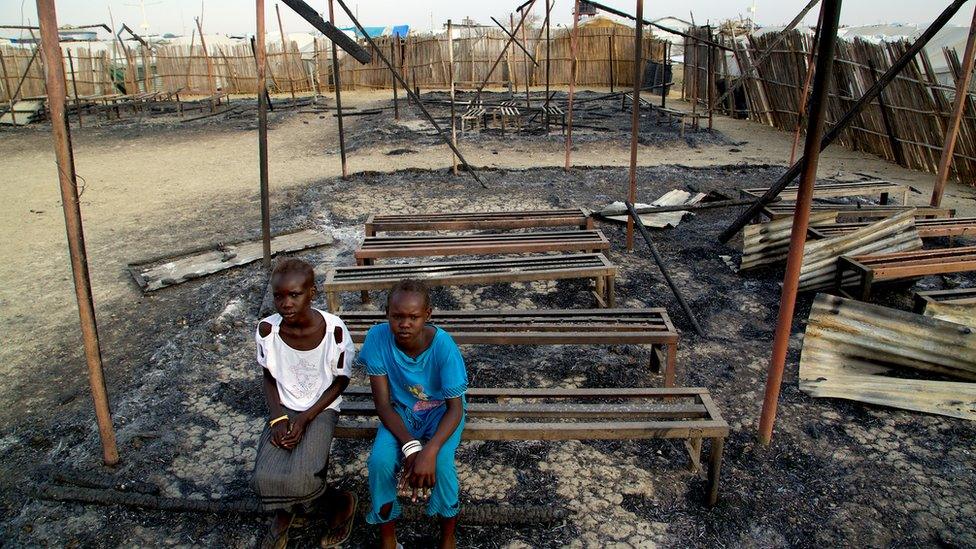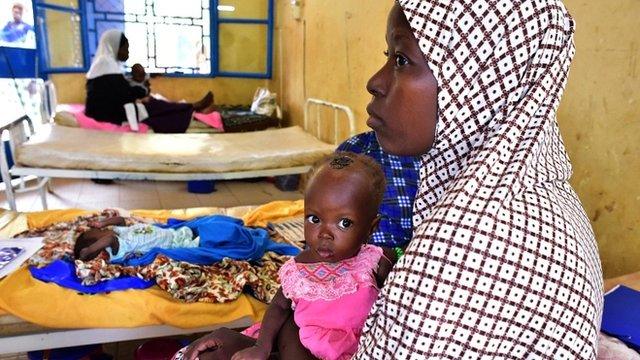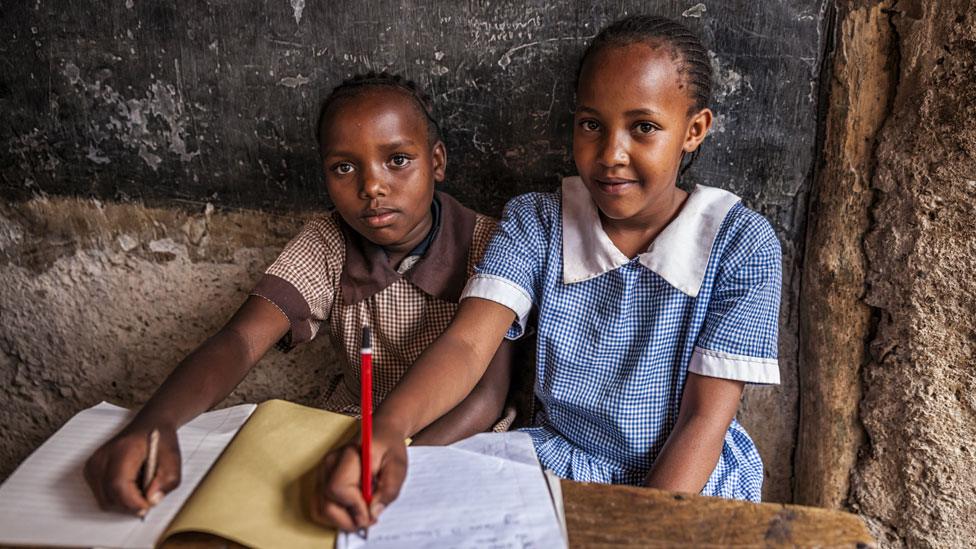UK overseas education aid 'raised by 50%'
- Published

The UK is promising funding to keep 880,000 children in school in poorer countries
The UK is increasing its support for a global education fund for developing countries by 50% to £75m per year.
International Development Secretary Penny Mordaunt is making the announcement at a global conference in Senegal, as part of a new emphasis on targeting aid at education projects.
Ms Mordaunt said supporting schools in poorer countries was a "hard-headed" investment in a more prosperous future.
But aid agencies warned the amounts promised were still insufficient.
Ms Mordaunt is promising £225m funding over three years at a global education conference in Dakar, hosted by France's President Emmanuel Macron and Senegal's President Macky Sall.
Building schools
This event will see international leaders pledging funds for the Global Partnership for Education (GPE), which works with developing countries on raising education standards in some of the poorest parts of the world.
Julia Gillard, former Australian prime minister and now chair of the GPE, said that by "increasing by 50% its commitment" the UK would give "millions of children an opportunity to go to school".
The UK government has faced accusations of either giving too much or too little in overseas aid.
Backbench critics have called for a reduction in aid budgets when public services are under pressure at home.
While aid agencies have called for the UK to show stronger leadership with more support for developing countries.
The UK's previous contribution to this global education fund has been £52m per year and will now offer up to £75m per year - with the GPE a high-profile part of the UK's support for overseas education.
But some aid agencies questioned whether such a full amount would be delivered, as this will be conditional on the level of contributions from other countries.
If these other contributions from donors are not sufficient, as has happened previously, aid agencies warn that there will be no significant increase in the level of UK funding.
Ms Mordaunt says that the UK wants to help prevent the "terrible waste of potential" when "half the world's children leave primary school unable to read or write".

War in South Sudan: Conflict has destroyed access to schools for millions of children
The UK's support will aim to keep 880,000 children in school for three years, including in countries caught up in political violence and war.
The funding will build 2,400 classrooms and train 170,000 teachers.
There will be an emphasis on teacher quality - after warnings from the United Nations that millions of children were attending schools in sub-Saharan Africa, but were leaving without even learning the basics.


"We need an education revolution, but to succeed in tackling this global learning crisis, we will not just need to be open-hearted - we need to be hard-headed too," says Ms Mordaunt.
"The UK will lead the way by supporting countries' governments to fundamentally overhaul their education systems to make sure they can ultimately step up and provide a good education for their own people.
"All children deserve a decent education to make the most of their talents and to help lift themselves and their countries out of poverty - building a more prosperous and more stable future for us all."
'Sustainable approach'
In the autumn, the international development select committee called for the UK government to give more of its aid budget to education.
A report from the committee said that at present about 7% of UK aid was spent on education.

Four out of five adult women in Niger are illiterate
It called for this to increase, arguing that improving schools and teaching would provide a more long-term and sustainable approach to development.
But the committee chairman Stephen Twigg said he was "very disappointed" that the amount pledged by the UK was much less than recommended by the committee.
He highlighted that the conditions attached to the amount promised could mean no real increase is delivered.
Kate Osamor, Labour's shadow international development secretary, said: "While it may sound like a lot of money, this is a deeply dispiriting announcement from the government".
She said that the amount promised would leave the GPE without enough funding was "surrendering Britain's reputation as a global leader".
Aid campaigners have called for a bigger increase in financial support from the UK to match the scale of the challenge.
The One campaign, which works to reduce poverty in Africa, says that this pledge is less generous than the previous funding round in 2014, when £300m was promised over four years.
But this was conditional on levels of funding from other donor countries - and when this was not forthcoming the amount given by the UK was about £50m per year.
Romilly Greenhil of the One campaign said: "A higher pledge would have given the UK a golden opportunity to demonstrate global leadership on education and use our expertise to promote quality education for all - an opportunity that now risks being lost."
This week figures from Unicef showed that almost a third of young people living in countries affected by conflict, mostly in Africa, were illiterate.
- Published20 April 2017

- Published21 November 2017
